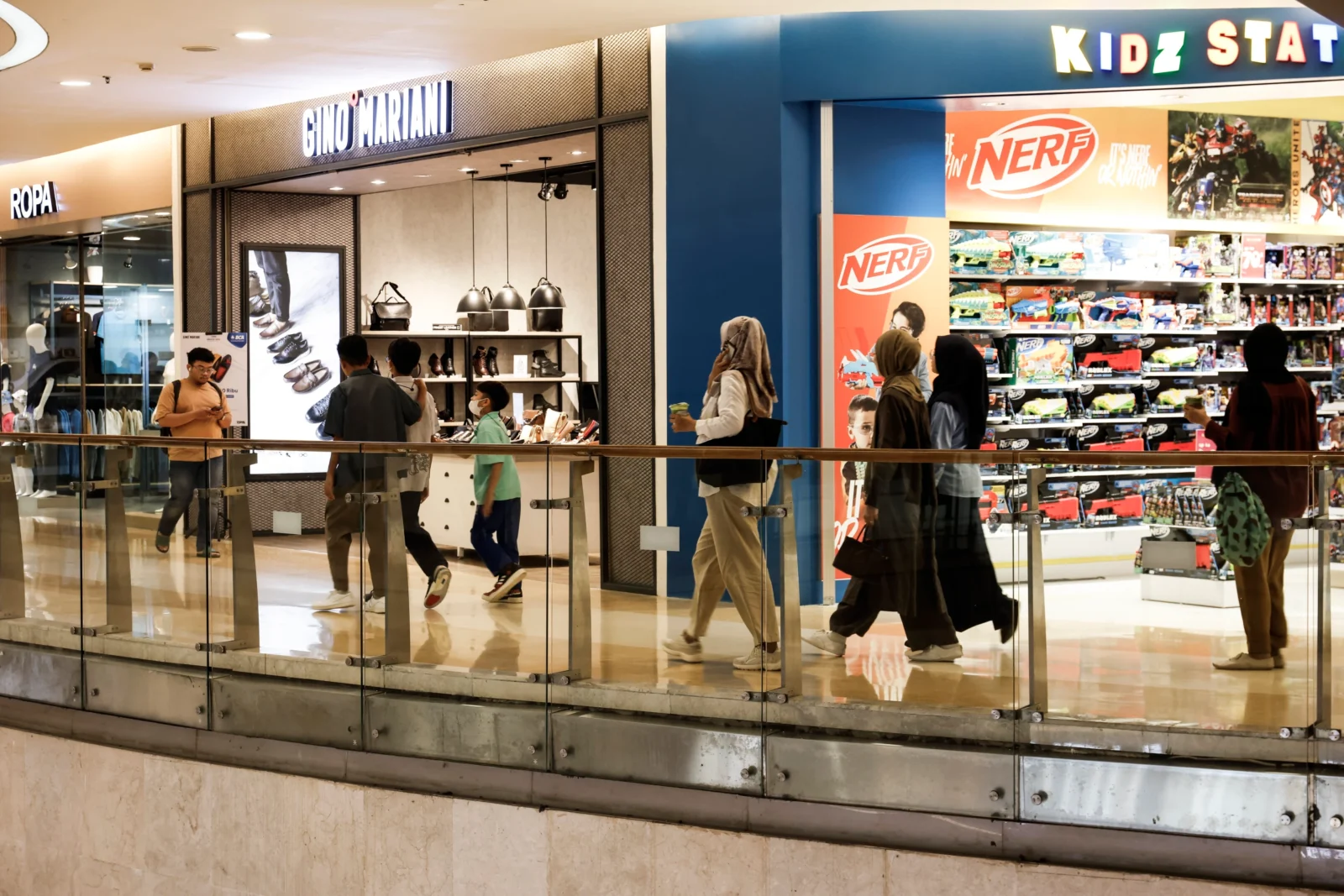JAKARTA — Indonesia’s retail sales are poised to rebound in July after nine months of sluggish growth, driven by stronger demand for certain goods, according to preliminary data from Bank Indonesia (BI).
The retail sales index (RSI) is estimated to have reached 222.5 in July, up 4.8 percent year-on-year from 212.4 in March last year. BI spokesperson Ramdan Denny Prakoso said the growth was “chiefly” supported by sales of spare parts and accessories and food, beverages, and tobacco.
Breaking the Weak Streak
Excluding the March spike during Idul Fitri, annual RSI growth has been subdued since October 2024, peaking at just 2 percent in February. April posted the weakest performance with a 0.3 percent contraction, although still better than the 2.7 percent drop seen in April 2024. November and January also saw particularly poor results.
On a monthly basis, July’s RSI is expected to fall 4 percent from June, reflecting the end of holiday and collective leave periods, when retailers typically run mid-season sales.
Mixed Sector Performance
- Gainers: Vehicle fuel sales surged 13 percent yoy, followed by spare parts and accessories (7.5 percent), food, beverages, and tobacco (6 percent), and culture and recreation (1.4 percent).
- Laggers: Information and communication device sales continued to slump, recording a 17.1 percent contraction in July — the latest in a series of double-digit declines since March.
Consumer Outlook
Retailers expect inflationary pressures to ease in September and October before rising again in November–December due to Christmas and New Year demand. Sales forecasts remain cautious for the next three months but point to a peak in December.
This aligns with consumer confidence trends: BI’s consumer confidence index (CCI) edged up to 118.1 in July from 117.8 in June, supported by improved expectations for the next six months. The consumer expectations subindex rose to 129.6, with income expectations showing the biggest gain, job availability expectations slightly up, and business activity expectations declining.
Wider Economic Context
Statistics Indonesia (BPS) reported on Aug. 5 that GDP grew 5.12 percent yoy in Q2 2025, exceeding the 4.8 percent market forecast. Household spending — which makes up the bulk of GDP — rose 4.97 percent, up from 4.95 percent in Q1. The increase was partly fueled by a consumer stimulus package in Q2, including discounted transportation fees during the school holiday period.















Leave a comment